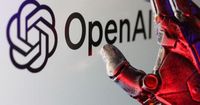OpenAI, the artificial intelligence research lab, has announced plans to release its first open-weight language model since the launch of GPT-2, marking a significant shift in its approach to AI development. CEO Sam Altman revealed on March 31, 2025, that the model, which will include reasoning capabilities, is expected to be available in the coming months. This announcement comes as OpenAI seeks to engage with developers and the broader AI community to refine the model before its official release.
In a move to gather valuable feedback, OpenAI published a feedback form on its website, inviting developers, researchers, and interested community members to share their insights on what features they would like to see in the new model. The form poses questions such as, "What would you like to see in an open-weight model from OpenAI?" and "What open models have you used in the past?" OpenAI expressed enthusiasm about collaborating with the community, stating, "We’re excited to collaborate with developers, researchers, and the broader community to gather inputs and make this model as useful as possible."
To facilitate this process, OpenAI plans to host a series of developer events, the first of which will take place in San Francisco within a few weeks. Subsequent sessions are planned for Europe and Asia-Pacific regions. These events aim to promote discussions about the model's utility and demonstrate early prototypes. Interested parties can sign up for these events through a link shared by Altman on the social media platform X.
Altman highlighted the importance of the open-weight model, noting that its trained parameters will be publicly accessible. This allows developers to analyze and fine-tune the model for specific tasks without needing the original training data. He explained, "We still have some decisions to make, so we are hosting developer events to gather feedback and later play with early prototypes." This approach contrasts with traditional open-source models, which provide complete access to source code, training data, and methodologies.
OpenAI's decision to pursue an open-weight model comes amid increasing competition from other AI firms. Rivals such as the Chinese AI lab DeepSeek have adopted an open approach, releasing models for public experimentation and commercialization. This strategy has proven successful for companies like Meta, whose Llama family of open AI models has reportedly achieved over 1 billion downloads, showcasing the demand for accessible AI tools.
In a recent Reddit Q&A, Altman acknowledged that OpenAI has been on the "wrong side of history" regarding open sourcing its technologies. He stated, "[I personally think we need to] figure out a different open source strategy." Although he noted that not everyone at OpenAI shares this view, he emphasized the need for the company to adapt its approach to remain competitive.
Altman elaborated on the upcoming open model's capabilities, indicating that it will possess reasoning abilities similar to those of OpenAI's o3-mini. He assured the public that the model will undergo rigorous evaluation according to OpenAI's preparedness framework, which is standard practice for all their models. He stated, "Before release, we will evaluate this model according to our preparedness framework, like we would for any other model." This evaluation process will include additional work to ensure the model's readiness for users, especially considering that it is expected to be modified post-release.
Furthermore, the announcement comes at a time when OpenAI is navigating significant changes within the organization. Excerpts from a forthcoming book by Wall Street Journal reporter Keach Hagey suggest that Altman misled OpenAI executives about model safety reviews prior to a brief ousting in November 2023. This revelation adds a layer of complexity to the narrative surrounding OpenAI's leadership and decision-making processes.
OpenAI's transition to a for-profit company is also on the horizon, as it seeks to secure full funding of $40 billion led by SoftBank Group by the end of 2025. This transition is seen as essential for the company to continue developing cutting-edge AI models. Altman has previously indicated that simplifying OpenAI's AI products is part of a broader roadmap for the company.
As the AI landscape continues to evolve, OpenAI's commitment to releasing an open-weight language model signals a potential shift in its operational strategy. By engaging with the developer community and prioritizing feedback, OpenAI aims to create a model that meets the needs of users while remaining competitive in a rapidly changing market.
In summary, OpenAI's plans to launch its first open-weight language model in the coming months represent a pivotal moment in the company's journey. With an emphasis on community collaboration and a focus on reasoning capabilities, OpenAI is poised to redefine its relationship with developers and users alike. As the release date approaches, the AI community eagerly anticipates the innovations that will emerge from this new model.







